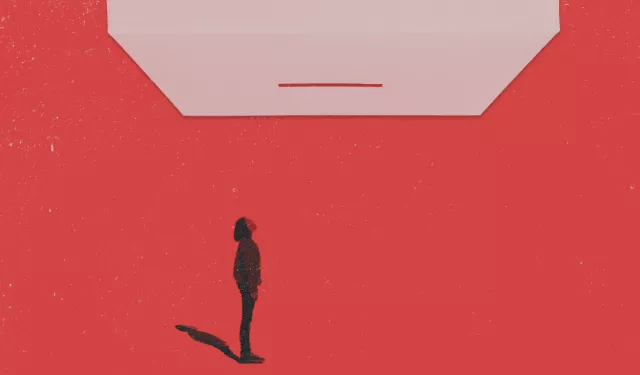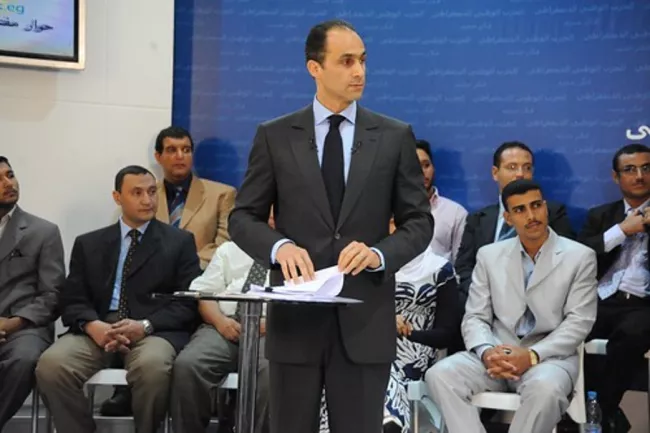
Reproducing Mubarak’s last parliament
The most troubling aspect of the House of Representatives elections is not merely a voting system designed to squander ballots, nor the systematic vetting of candidates and exclusion of entire lists, nor even the abstention of voters whose will this process ostensibly exists to represent.
It is, rather, the unabashed return of that old alliance between power and money, a revival of the very atmosphere that suffocated political life in the years leading up to the January 25 Revolution.
where democracy is a matter of form, not substance, ruling circles engineer the parliamentary scene to guarantee a loyal majority that backs the government, defends it, and justifies its policies and decisions.
At the same time, they allow for a minority opposition that criticizes and attacks within a permitted margin that never crosses the red lines drawn in advance.
This political choreography manufactures the illusion of balance. It is designed not to empower the public, but to placate it, to convince an angry public that change might still be possible through a system structured precisely to prevent it.
That, in turn, produces a fragile stability that prolongs the life of regimes. As long as there are dissenting voices that criticize and warn under the dome of parliament and on media platforms, hope in reform remains alive as a supposedly safer alternative to rough methods of change whose consequences cannot be controlled.
In Egypt, as in other Third World countries where ruling circles keep a tight grip on the political and media arenas, the opinion of the powerless citizen carries no real weight in choosing representatives.
There are bodies, we are told, that are more experienced and more capable of choosing, drawing the playing field and pushing their parliamentary arm to pass electoral laws tailored to loyalists.
These bodies then assign those loyalists to strike deals and build alliances that tame any dissenters, while their media platforms market those laws and present the resulting deals and alliances as a “great victory,” as if the entire nation had united around one idea.
In the end, the scenes of the electoral “wedding”—presumably between the people and their parliament—are broadcast live and direct: from the flag-wavers lined up in front of the cameras chanting the pro-army patriotic song “Teslam al-ayadi/Bless the hands” to the (real) bride and groom dragged from their wedding night to the polling station and the heart patient who decided to perform his “national duty” instead of going into the operating room.
These performances did not convince the Egyptian voter, who was absent from most polling stations except in some rural and low-income areas, where the logic of tribal voting prevails.
Nor did they convince Arab and international media, which devoted extensive coverage to the Iraqi elections because of the competitiveness and seriousness that were missing from the Egyptian elections, where a single list is competing with itself for half of parliament’s seats.
Meanwhile, the number of candidates for the other half, the individual seats, has fallen by nearly 35% compared with the 2020 contest.
This means that the engineering of the scene has failed to convince candidates, voters, or the media, after everyone realized that the results were already decided and that the whole thing is nothing more than a foregone conclusion.
Even though the election engineers took care to keep the ingredients of the “dish” hidden under the lid, social media exposed what they wanted to conceal.
It began with nomination forms revealing the inclusion of siblings and spouses of senior officials on the approved lists. Then came the wave of businessmen — strangers to politics and public service — who suddenly discovered that parliamentary immunity offers the safest shelter for wealth. It ended, quietly but unmistakably, with the reappearance of aides and advisers from the Mubarak era, returning under the radar and through the side doors of power.
These men had been plotting their return to the centers of power for years—only, this time, behind less conspicuous fronts. They knew the public had not yet forgotten how they monopolized wealth and decision-making in the final years of that regime, and they adjusted their faces accordingly.
The January 25 Revolution drove those monopolists of power and money out through the door, encircled and condemned them and sent some of them to prison on charges of corruption, profiteering, and monopoly practices.
Yet here they are today peeking back in through the window: first through the parties and alliances of “Al-Watan/the homeland” in the run-up to the 2015 elections, and later through men who have been recycled, polished, and presented as philanthropists.
With the beginning of the new millennium, as Gamal Mubarak and his men rose to the surface of political life, the prevailing discomfort with the practices of the former regime turned into a sweeping wave of anger in the streets.
Strikes and sit-ins followed one after another for social, economic, and political reasons, and movements and coalitions multiplied calling for change and rejecting hereditary succession.
The men of “Mubarak junior” defied the people.
Instead of the regime looking for solutions, even by venting popular anger, it handed the reins to a clique that monopolized power, wealth, and influence, sidelining opponents and loyalists alike.
The rigging of the 2010 People’s Assembly elections was the straw that broke the back of Mubarak’s regime.
The National Democratic Party’s Policies Committee decided at the time to turn parliament into a legislative chamber subordinate to it.
NDP loyalists took 420 of 508 seats, while independents aligned with the party won 66 seats and the opposition secured only 14 seats.
The late president did not realize that the parliament engineered by his son’s men and some state agencies would be the final station on his regime’s path.
People lost hope in reform and in confronting corruption through the political process, and they chose the path of revolution, indifferent to the consequences.
After decades of a rigged political will and monopolized power, Egyptians came to believe there was no escape from the labyrinth of poverty, underdevelopment, disease, and corruption—except by bringing down the regime that had embedded failure into the very DNA of the state. That collapse, they believed, was the only path toward building a system that respected the people’s will.
A system that guarantees the establishment of independent executive and legislative institutions—institutions that truly represent the citizenry and accept oversight and accountability without irritation or contempt.
“After the National Democratic Party tightened its grip on the legislative branch amid an almost complete absence of opposition,” wrote the fact-finding committee on the January Revolution, “the people were left with only three options: to resort to clandestine activity, appeal to the military, or take to the streets—which is precisely what happened, as Tahrir Square became the alternative to parliament.”
That was the conclusion of a committee chaired by Counselor Adel Qoura, former president of the Court of Cassation. It found that the conduct of the 2010 parliamentary elections had effectively handed the legislature over to individuals whose seats were already under legal challenge—with no constitutional or legal path to rectify the situation.
The committee, formed under the chairmanship of Counselor Adel Qoura, former president of the Court of Cassation, affirmed that the way the 2010 parliamentary elections were run led to the legislature being taken over by people whose membership was under legal challenge, with no hope of correcting this situation.
In its report issued in April 2011, the committee called for addressing the sins of the former regime that had paved the way for the January revolution.
It stressed the need to build a modern, civil, democratic state based on justice, equality, and freedom; to lift the hand of the security apparatus off state institutions; to review laws that shackle freedoms; to respect the will of the people; and to guarantee fair, competitive elections that achieve real rotation of power and build strong governing institutions.
Hemmed in by crises on all sides, Egypt cannot withstand another shock. But to avert the next one, we must stop repeating the same mistakes while expecting a different outcome.
Published opinions reflect the views of its authors, not necessarily those of Al Manassa.

